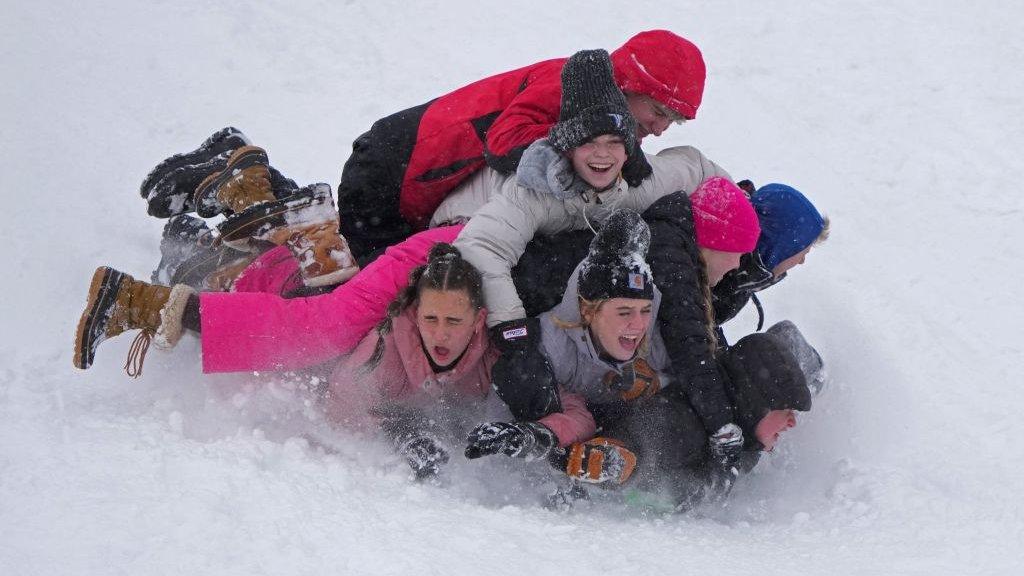New York City wakes up to biggest snowfall of season
- Published
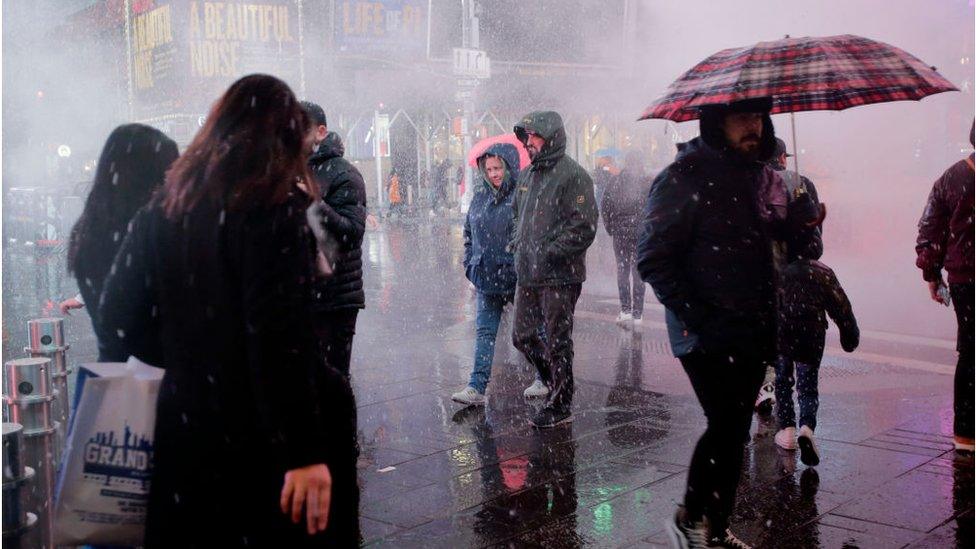
New York City is expecting to see its first impactful winter storm of the season
A new coast-to-coast winter storm is forecast to pummel parts of California, the Midwest and US north-east this week.
Parts of the north-east could see up to 8in (20cm) of snow, the National Weather Service (NWS) said, with New York City getting 2-6in.
Further heavy snow is forecast on the other side of the country for California's mountainous areas.
It comes as 12 people were injured by tornadoes in Oklahoma.
"New York City will be on the southern edge of the heaviest snowfall and could mix with sleet at times, limiting snowfall amounts to the 2-6 [inch] range, but still likely the biggest snowstorm of the season," the NWS said in its latest forecast.
Snow began falling on Monday evening and is expected to turn into a mix of sleet and rain into Tuesday morning.
A travel advisory had been issued for New Yorkers from 18:00 (23:00 GMT) on Monday to 14:00 on Tuesday, urging people to use mass transit whenever possible and to allow extra time for their commutes.
The late February storm is the heaviest in New York City this season. New Yorkers, like much of the north-east, have had an unusually mild winter so far.
Several school districts in the city announced they will be closed on Tuesday because of the weather.
Winter storm warnings are also in effect for all of Connecticut and Rhode Island. Heavy snow across the north-east is expected to come to an end on Wednesday, the NWS said.
This winter storm comes at the heels of tornadoes and powerful winds that have hit central US on Sunday and Monday in states like Oklahoma, Missouri and Texas, where residents were urged to seek shelter.
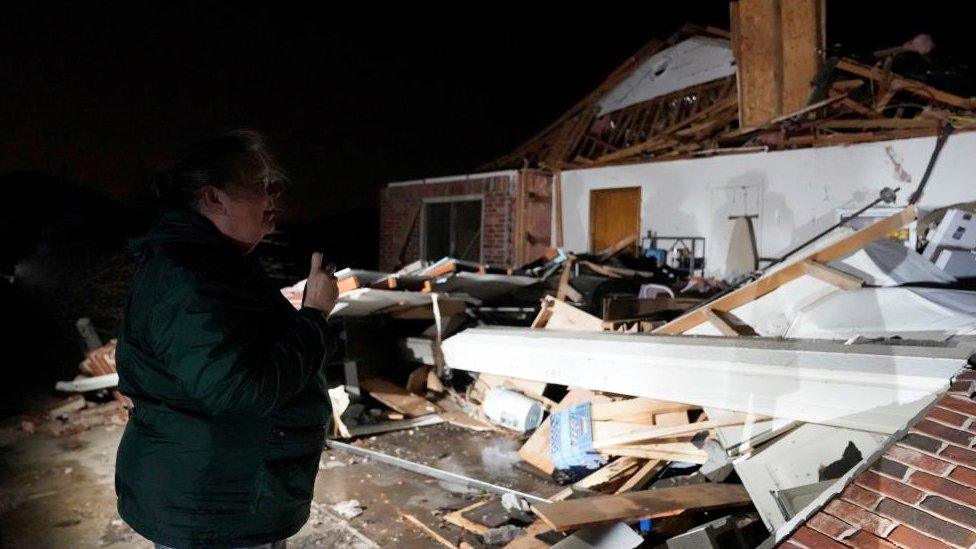
Tornadoes in Oklahoma destroyed several homes and knocked down power lines on Sunday
In Oklahoma, seven tornadoes were reported to have hit the state late on Sunday, one of them deadly. Local news media reported that 62-year-old Billy Trammel died in the western region of the state due to the storm.
Footage emerged showing overturned cars and homes with collapsed roofs due to the strong winds.
A wind speed of 114mph (183km/h) was recorded in northern Texas near the border with Oklahoma - the equivalent of a Category 3 hurricane.
The NWS and experts have said that the weather pattern probably qualifies as a "derecho", a rare weather pattern characterised by extremely strong straight-line winds.
Parts of Michigan, where more than 158,000 people remained without power after a winter storm last week, were hit again with freezing rain and strong winds on Monday.
Oklahoma storm destroys homes, leaves a dozen injured
Californians have already faced mass power outages, flooding and the closures of both motorways and beaches as a winter storm swept that US state.
More than 120,000 people - many of them in the Los Angeles area - lost electricity after days of fierce winds.
Just outside of Los Angeles, in San Bernadino County, officials declared a local emergency after massive snowfall trapped residents at home.
As of Tuesday morning, around 49,000 homes in California remained without power, but by the early afternoon that number increased to over 69,000.
Yosemite National Park will remain closed until Wednesday because of severe winter conditions.
Residents of the state capital of Sacramento have been warned to avoid travel until Wednesday with rain and snow starting up again.
A few hundred miles east of Sacramento, an intensifying blizzard in Sierra Nevada has prompted the issuance of an avalanche warning through Wednesday morning.
With additional reporting from Brandon Drenon

Have you been affected by the winter storm that is hitting the US? You can get in touch by emailing haveyoursay@bbc.co.uk, external.
Please include a contact number if you are willing to speak to a BBC journalist. You can also get in touch in the following ways:
WhatsApp: +44 7756 165803, external
Tweet: @BBC_HaveYourSay, external
Or fill out the form below
Please read our terms & conditions and privacy policy
If you are reading this page and can't see the form you will need to visit the mobile version of the BBC website to submit your question or comment or you can email us at HaveYourSay@bbc.co.uk, external. Please include your name, age and location with any submission.

Related topics
- Published24 February 2023
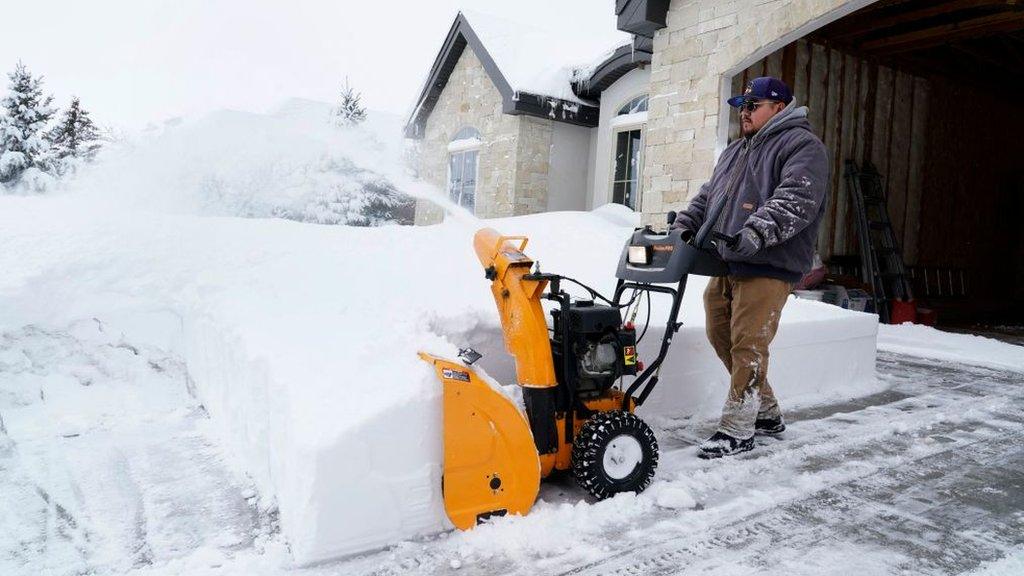
- Published26 February 2023
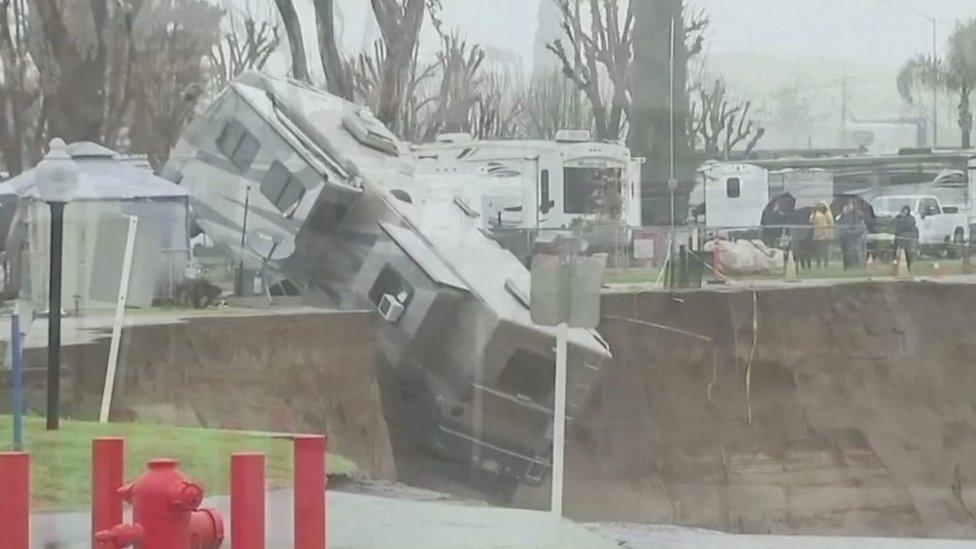
- Published23 February 2023
